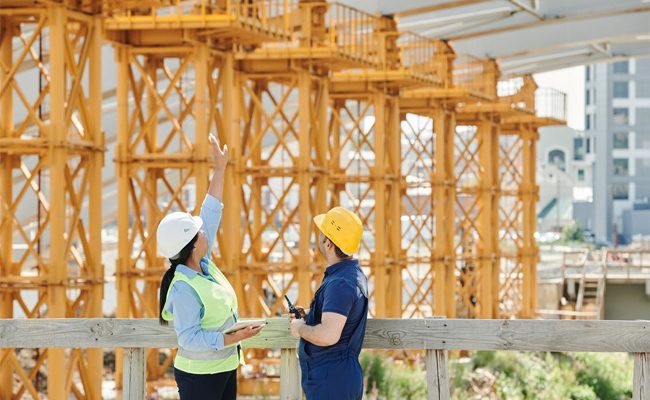Navigating the complex maze of any construction project can be a daunting challenge, fraught with numerous potential pitfalls. These may range from budget overruns and schedule delays to communication breakdowns and compliance issues. However, with careful planning and strategic management, these obstacles can be effectively circumvented.
This blog post will delve into the common pitfalls encountered during construction projects and offer pragmatic tips and strategies to keep them on track, ensure smooth execution, and reach a satisfying outcome that fulfills all objectives.
If you want to learn more, check out ALICE’s article on construction planning stages.
How to ensure smooth project execution
Here are some ways to ensure that your construction projects are carried out as expected.
Utilize technology
Leveraging modern technologies can significantly enhance productivity and efficiency. Tools that encourage the use of building information modeling (BIM), for example, can help visualize the project in 3D, improving planning and coordination. In this context, companies like H-E Parts play a crucial role by providing advanced equipment and solutions that integrate seamlessly with BIM technologies. Their expertise in the field ensures that project management becomes more streamlined and effective, aiding in timely and cost-efficient project completion.
Facilitate effective communication

source: constructionprojectmanagementpro.com
Encourage a culture of open and effective communication among team members to prevent misunderstandings and errors. Utilize project management software and conduct regular team meetings to enhance communication.
Verify compliance
Ensure all work complies with relevant laws, regulations, and safety standards to avoid legal issues and project holdups.
Ensure proper quality control
Implement stringent quality control measures to ensure that the work done meets project requirements. Regularly inspect materials for quality and ensure workers are fully trained and competent.
Find ways to avoid budget overruns
Ensure the initial cost estimation is as accurate as possible, taking into consideration potential fluctuations in material prices, labor costs, and other expenses.
Manage risk

source: pinterest.com
Identify potential risks at the outset and develop contingency plans. Conduct routine risk assessments throughout the project to stay ahead of potential disruptions.
Regular progress reviews
Conduct regular reviews to monitor the project’s progress. This allows for early identification of issues or delays, enabling timely corrective actions.
Strong leadership
A competent project manager can drive the team to achieve project goals. Good leadership involves motivating the team, managing resources effectively, and making informed decisions when necessary.
Continuous training
Regular training sessions can ensure all team members remain up-to-date on the latest construction practices and safety standards, helping improve work quality while decreasing the risk of accidents.
Supplier relationship management

source: pinterest.com
Establishing strong relationships with suppliers can ensure a steady supply of quality materials. Negotiated discounts or bulk purchase deals can also lead to cost savings.
Client involvement
Keeping the client involved and informed about the project’s progress can enhance satisfaction and lead to repeat business. Regular updates, walkthroughs, and feedback sessions can help keep the client engaged and make them feel valued.
Prevent schedule delays whenever possible

source: homoq.com
Plan meticulously before initiating any construction project, including understanding the project’s scope, budget, and timeline. Use project planning tools like Gantt charts to visualize the schedule and crucial milestones.
Successful project execution hinges on effectively addressing pain points
Successful execution of a construction project requires meticulous planning, clear communication, stringent quality control measures, proactive risk management measures, and strong leadership. By following these guidelines and applying their suggested solutions to their construction projects, project managers can successfully address common obstacles more easily.
Regular progress reviews and an open culture of communication can further aid in the early identification and swift resolution of potential problems. Ultimately, every construction project is a new opportunity to learn, grow, and refine processes for future ventures, fostering a continuous cycle of improvement.


